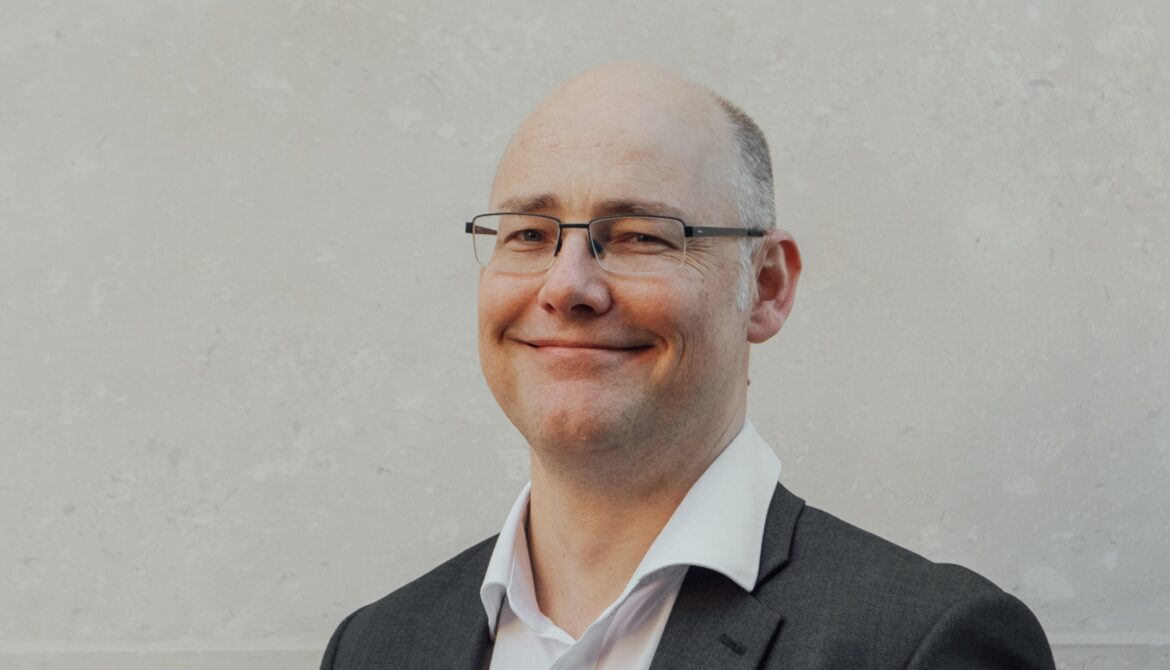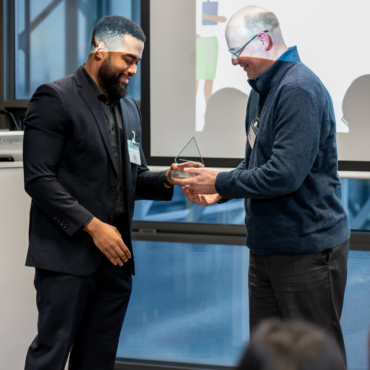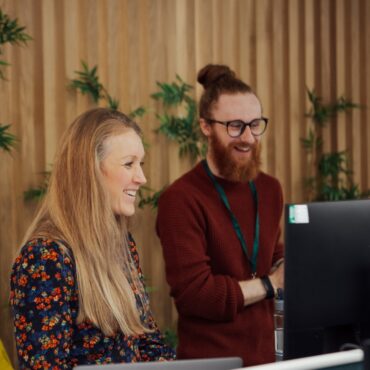
Views • 27/03/2024
Exploring DE&I with MAPP’s Head of People – Sean Greathead
In 2024, our People team has been buzzing with new innovations to make MAPP a more inclusive and inviting Great Place to Work. We caught up with Sean Greathead, our Head of People and Talent, to hear what his team has in the works.
1
Last year, MAPP transitioned into an Employee Ownership Trust (EOT). How does this change our approach to making MAPP a truly welcoming place to work?
The Employee Ownership Trust doesn’t change our philosophy, but it changes the process. How do we draw in everyone’s perspective – we have 600+ people and lots of competing views and priorities. We also have to educate people, because most people have never worked in an Employee Ownership Trust. They think it’s business as usual, but it’s not – it will evolve.
Part of it is how we gather that feedback. We have the ‘Love and Loathe’ conversation, which we have once a year. We also have the engagement surveys, et cetera. And the more voices we hear, the more it becomes about everybody’s hopes and dreams, not just a select few.
2
What is the biggest challenge you see across the property industry in recruiting and retaining a diverse workforce?
I think that the pipeline of people that come out of a professional world of, for example, surveyors, is very limited. Because if they all went to school or played rugby together, you’re never going to get a diverse workforce. So how do we expand that funnel of people coming through?
60 years ago, the majority of programmers were women, but it’s become a male-dominated environment. It’s about the choices we make along the way.
Part of it is how we bring people into the industry. We’ve tried that using apprenticeships, and we will continue to explore. But it’s not an overnight journey. You don’t miraculously create leaders if there aren’t people. And we’ve got to invest in the journey from its infancy all the way through and give people the opportunity to grow.

3
You and your team were recently recognised with a Spotlight Award at the CIPD Ethnicity Pay Gap Summit. How does MAPP ensure we’re making ourselves visible and accessible to people of all backgrounds?
How we frame it is saying, ‘everybody’s welcome, and everybody’s wanted.’ It’s got to be both.
It’s not just about people’s experiences today; it’s about the career path. We try really hard to make sure that no one is ‘Bob.Smith.11.’ In HR speak, you have something called the employee value proposition – at MAPP, we call them people pillars. One of those is that we know you–not only ‘you like rugby,’ but you’re passionate about charity or you want to be a senior facilities manager or you want to be a building manager.
Importantly, for me, we’re not a family. We’re a community and that means we choose to be here. And we make sure our community is as broad as possible, with diversity of thought, experience and background, not just ethnicity or sexual orientation. Some people have children, some don’t. We want to know how you manage someone in a way that their differences are not seen as a barrier but rather as a gift.
4
We’ve all heard how important it is for prospective employees to see themselves represented in a company. How does your team work to ensure MAPP continues to support diversity at work beyond ticking boxes?
Historically, the norm was a social event at the pub. That automatically excludes people who choose not to drink. If you’re doing a social event at 6pm, what does it mean if you’ve got kid pickup or you’ve got caring responsibilities? Why don’t we have social events that include cake at 11 o’clock in the morning? Not everything has to meet everybody’s needs, but you’ve got to have a variety of opportunities to interact and create community.
If we measure everybody’s ability to climb a tree like a monkey, and someone’s a fish, they’re going to fail in climbing a tree. But we want to ask, ‘Can you make progress? Can you make that better? Can you have a positive impact?’ That is where it’s exciting. The richness of that is that you’re getting different voices, and different ideas. And we get to benefit from that richness.
5
Diversity with respect to race, gender, class, etc, has already been at the forefront of the conversation. What is the next big frontier of diversity that many HR professionals have yet to grapple with?
It’s the intersections of diversity. So it’s gender and ethnicity, or its disability and ethnicity. It’s not just about the binary points. Generally, there are two big areas
that we’ve got to wrestle with; one is disability. Simple things like bathroom doors – they’re heavy. If you use a wheelchair, that’s going to be hard. We’re in conversations with the building consultancy team about auditing our offices. What barriers do we need to remove? How do we attract people into these spaces? It’s really hard to be a Building Manager if you have mobility challenges. You’ve got to solve that problem rather than say it’s just too hard.
The second is neurodiversity. The statistics say that up 20% of the population is neurodiverse. Have we just pathologised normality? One in seven people have dyslexia. Stereotypically, people see that as a spelling issue, but it’s more complex. The ability of someone who’s dyslexic to connect different thoughts together, and to solve problems in a different way, gives us the ability to see connections that other people don’t. So we’ve got to manage people with these differences. That requires us as a business and as line managers to step outside of the standard way. It can be uncomfortable. But let’s be honest, with the best things in life, it might be hard, but the value is phenomenal.

The efforts of Sean and the People team have helped MAPP grow into an organisation that better represents the world around us, but they’re not stopping to pat themselves on the back. With new ways of making careers in real estate accessible, MAPP and the People team hope to take a leading role in creating a more inclusive industry.